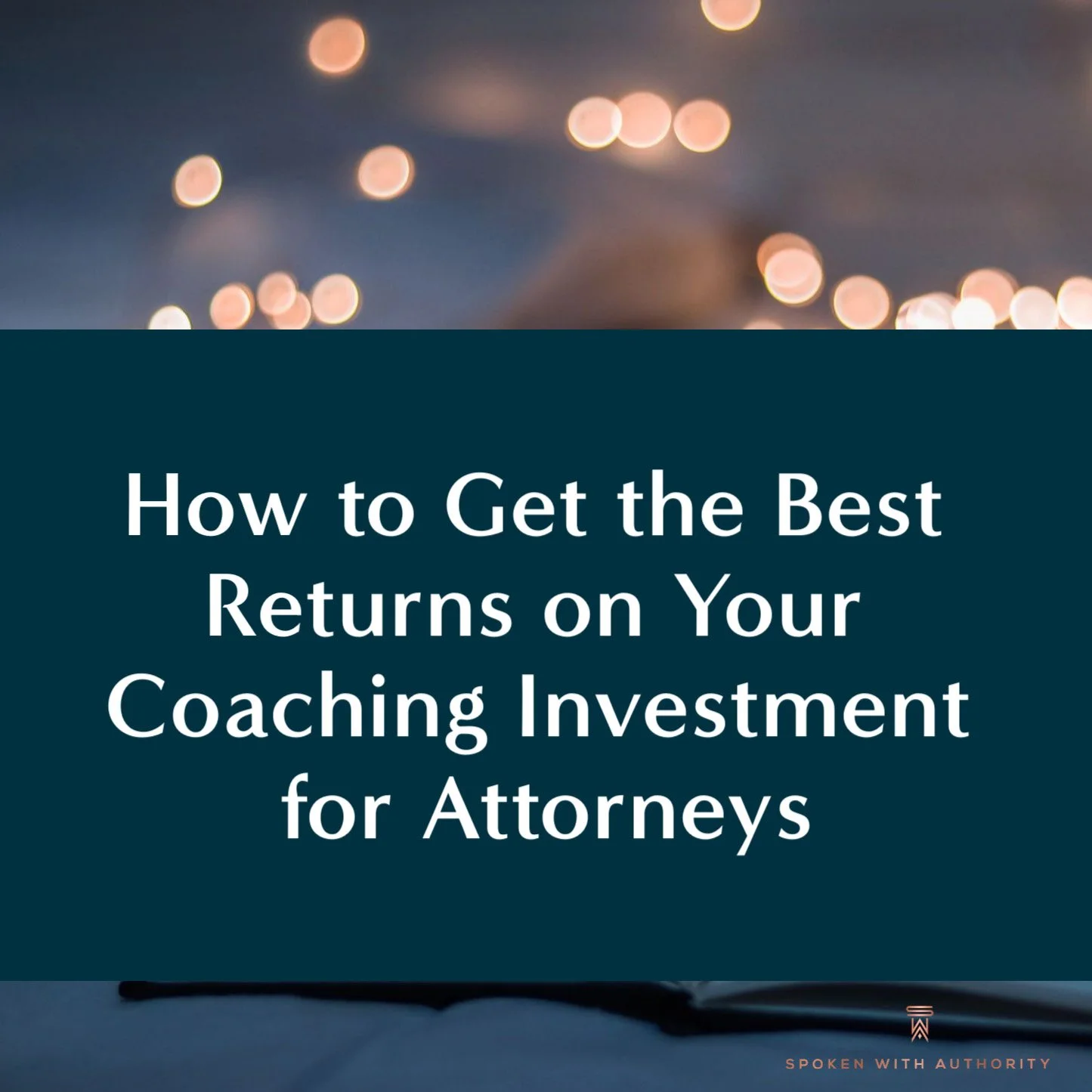Making Magic with Your Coaching Investment from 3 Presentation-skills Coaches
By Steve Hughes, David Henderson, and Christine Clapp
You have identified an attorney or professional who could benefit from coaching. Your firm has a budget for coaching and a coach who will be a great fit for the professional-development goals. It could be the beginning of a career and even life-changing transformation.
But not every coaching investment results in a magical transformation. Far from it. And that’s a disappointment to the firm or organization, the coach, and the person being coached. That’s why three presentation-skills coaches, who are speaking together at the 2022 Professional Development Institute on December 2, 2022, in Washington, D.C., are offering advice on what firms can do to get the best results and most value out of the coaching investments they make for attorneys and other professionals.
Steve Hughes: Put in the time and keep an eye on the big picture
While it is important to have a coachable attitude, if you want to become a better golfer or piano player, you just have to do it. There’s no Harry-Potter spell that will suddenly get you to your professional-development goals without putting in the time. Don’t expect a full transformation in a few hours; it generally takes several months of consistent practice and effort to establish new habits and achieve lasting results.
During the time it takes to see real change, coaches need to remember to focus on big-picture goals. Sometimes we get bogged down in the process. Coachees get bogged down in, “Why am I even doing this?” Acknowledge that doing X, Y, or Z may not be fun, but the payoff will be unbelievable. Maybe that’s landing more clients, wining more cases, delivering motions that are better received, etc. Keep the positive outcomes top of mind to motivate attorneys who are receiving coaching.
David Henderson, Esq.: Keep the audience in mind and use your coach to save time
When lawyers communicate, we spend a lot of time thinking about precise examples that capture everything that needs to be covered legally. But here’s the problem: it’s easy to forget that it doesn’t matter how good your example or legal analysis is if it’s not received well by your audience.
If you’re presenting an idea to a judge, a jury, an arbitrator, or a client, you have to know how it comes across to other people. So, for lawyers, you haven’t even begun to rehearse until you have an active audience. Now, attorneys have hours to bill and lots of other tasks to take care of at work, which means they don’t have much time to practice.
That’s where a coach can help – we can save you a lot of time. We can streamline the process of workshopping your ideas and revising them without having to do as much rehearsal. Rehearsing is still a big part of coaching, but we can help make your content more persuasive and accessible to your audience so that you can prepare for speaking roles faster and have better communication outcomes.
Christine Clapp: Select coachable participants and value their coaching time
There are two keys to a successful coaching investment. First, there’s no point in spending money and investing in an individual who does not want to receive coaching. A robust evaluation or feedback process can help raise awareness of areas for development and invite people receiving coaching to be part of the process of who they’re working with, what the goals are, etc. But if that person is not fully committed to doing the coaching, going through a little bit of discomfort and struggle to try new things, and open to changing the way they’re doing things, it will not be worth the investment.
Second, coachees need permission to do the coaching. One of the big roadblocks to a successful coaching investment is when attorneys who are excited to do the coaching and who are committed to the process and goals get undercut when they have a coaching session on the calendar. At the time of their appointment, a supervisor says, “We need you to do this other thing now. It’s more important than coaching.” That makes it impossible for the firm to get the most value out of the engagement. Even if the coach is willing to reschedule a late-cancelled appointment, the coachee has lost momentum and can read between the lines that their professional-development efforts are not valued.
Professional development professionals need to get the buy in, support, and permission of people who are in a position to delegate work and have control over the schedule of the person who’s doing the coaching. There needs to be an understanding that during coaching appointments, only the truest emergency on the part of the firm or client would lead to an interruption of that session and the momentum of the engagement.
Conclusion for Making Magic with Your Coaching Investment
If you offer coaching to attorneys or professionals, these are a few strategies from three veteran presentation-skills coaches that will help ensure that your coaching investment is one that’s going to return big dividends and perhaps even seemingly magical transformations.
Steve Hughes is the president of Hit Your Stride, LLC. David Henderson is a workshop facilitator and leadership communication coach at Spoken with Authority. Christine Clapp is the founder and president at Spoken with Authority. Steve, David, and Christine are co-presenting a session entitled “Secrets of Great Speaking from 50 Years of Presentation Coaching” at the Professional Development Institute on December 2, 2022, in Washington, D.C.

